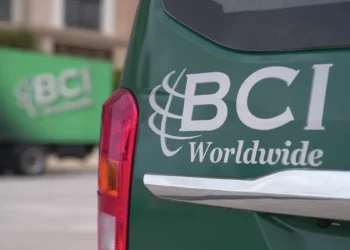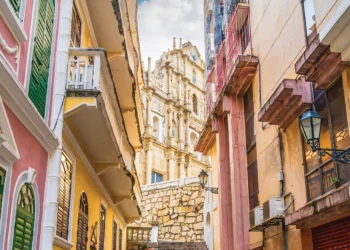Gaming initiatives win big in the US on Election Day, writes James J. Hodl
November 4th was a banner day for the gaming industry, with referenda to expand casinos and other gambling being approved everywhere except Ohio and Maine. In those states, referendums sought to create a single (and first) resort casino within the state. But elsewhere saw several firsts, including the first slot machines in Maryland, the first casino in West Virginia and the first lottery in Arkansas.
State-by-state results of gamblingrelated ballot initiatives are as follows:
ARKANSAS
By a nearly 60% majority, Arkansas citizens voted for Constitutional Amendment 3 to repeal the state ban on lotteries that has been in effect since 1836. Legislative leaders now predict that lawmakers will enact a state lottery early next year, which Arkansas Lt. Gov. William Halter predicted would annually raise $100 million to fund schools and other pressing needs in the state. The stunning success of this ballot initiative has some predicting that in two years citizens will be asked to approve full-fledged casino gambling beyond the slot machines now operating at some Arkansas dog tracks.
COLORADO
By a 58% majority, voters approved Colorado’s Amendment 50 to create higher-stakes gambling in the state’s casinos, all located in the towns of Black Hawk, Central City and Cripple Creek. Passage of the initiative will allow citizens in those three towns to separately vote to raise betting limits from $5 to $100, add craps and roulette, and extends casino operations to 24 hours.
Approval was heartily welcomed by Colorado’s community college system, which is primarily funded by gaming revenues, which will now likely increase.
MAINE
Question 2 has become the latest gambling proposal to go down to defeat in Maine. Voters in Oxford County voted 54% against legalizing casino gambling, thus enabling Olympia Gaming to build a casino in this ski resort area.
Dennis Bailey, head of the chief opposition group Casinos No, said he hoped this vote will end forever the desire of some to builds casinos in Maine. But Pat LaMarche, spokesman for the pro-casino group, said Maine residents missed the boat, as a casino will likely be built elsewhere in northern New England, with the resulting jobs and revenues going with them.
MARYLAND
Marylanders voted overwhelming for Question 2 to legalize slot machine in the state. Approved by a 3-to-2 vote, the measure would allow up to 15,000 slots to be installed at five locations throughout the state, with most going to Baltimore and Anne Arundel counties.
Proponents claimed that the slots would generate an additional $600 million in taxes, most of which going into the Maryland Education Trust Fund, but some targeted to refurbish the famed Pimlico racetrack.
Opponents of Question 2 told the Baltimore Sun they are not finished, and promised to wage campaigns against the proposed sites for slots gambling.
MASSACHUSETTS
Second time was the charm for opponents of greyhound racing in Massachusetts.
With the 57% approval by voters of Question 3, the 75-year run of racing dogs in the Bay State will end when the sport is banned in 2010. The owners of the two dog tracks in Massachusetts were aghast at the outcome of the voting, as they believed the measure would fall short as a similar ballot initiative did in 2000.
The ban will likely cost the jobs of about 1,100 employees at the two tracks, though it is legally possible that the tracks could stay open offering wagering on races videocast from out of state instead of live races.
Another way to keep the tracks open would be to let them install slot machines, which Massachusetts House Ways and Means Chairman Robert DeLeo told the Boston Herald he would propose in 2009 to cover the state’s expected loss of revenues from dog racing.
MISSOURI
Voters in Missouri approved by a healthy 56% margin Proposition A, even though opponents continue to press a lawsuit to keep the referendum off the November 4 ballot. As approved, the ballot initiative repeals Missouri’s unique law limiting gambling losses to $500 per twohour period, caps the licensing of casinos to those already open or under construction, and increases taxes on gambling revenue from 20% to 21% to better fund public education.
Although Cole County Circuit Court Judge Richard Callahan rejected a lawsuit to strip from the November ballot, opponents to the measure have appealed that ruling to Missouri’s Western District Court of Appeals in Kansas City, where oral arguments began November 20.
The appellate court’s ruling will likely not be the final word, as either losing side expects to appeal that decision to the Missouri Supreme Court, thus stretching the legal battle well into 2009.
OHIO
Ohio voters resoundingly rejected Issue 6 to build a $600 million casino near the town of Wilmington in the southwestern corner of the state.
The gambling initiative generated a 62% “no” vote despite promises that the casino, to be built by Minnesota-based Lakes Entertainment, would create 5,000 new jobs in Ohio, which currently has the nation’s second highest unemployment rate, and generate $210 million in tax revenues all 88 Ohio counties would share. Issue 6 was the fourth referendum to bring casino gambling to Ohio defeated since 1990.
As of November 6, backers of Issue 6 said they were gearing up for another try at bringing casino gambling to the Buckeye State. A new proposal is being drafted to not only answer criticisms of Issue 6 opponents, but to including building casino resorts in other parts of the state, including near the cities of Cleveland, Youngstown and Cincinnati. As soon as this proposal is written, the pro-casino group MyOhioNow will begin collecting signatures to get it on the November 2009 ballot, the group’s cofounder Rick Lertzman told the Cleveland Plain Dealer.
WEST VIRGINIA
By a mere 366-vote margin, residents of West Virginia’s Greenbrier County voted to approve a casino for the historic Greenbrier Resort.
Although most local churches vocally opposed the referendum on moral grounds, most citizens saw it as an economic development issue, thus making it the first pro-gambling initiative to be approved in the county (by 6,683 for to 6,317 against), the Charleston Gazette reported.
Spurring voter approval were reports that the four-star resort had operated $40 million in the red during the previous four years.
Without an additional source of income would have to close, costing more than 1,100 local residents their jobs, owner CTX Corp. said of the resort that has been in operation since before the Civil War.
Reprinted with permission from International Gaming and Wagering Business (IGWB) magazine. James J. Hodl is an associate editor for BNP Media Gaming Group, based in the Chicago area. He can be contacted at +1 630-694-4021 or by e-mail at hodlj@bnpmedia.com.


































